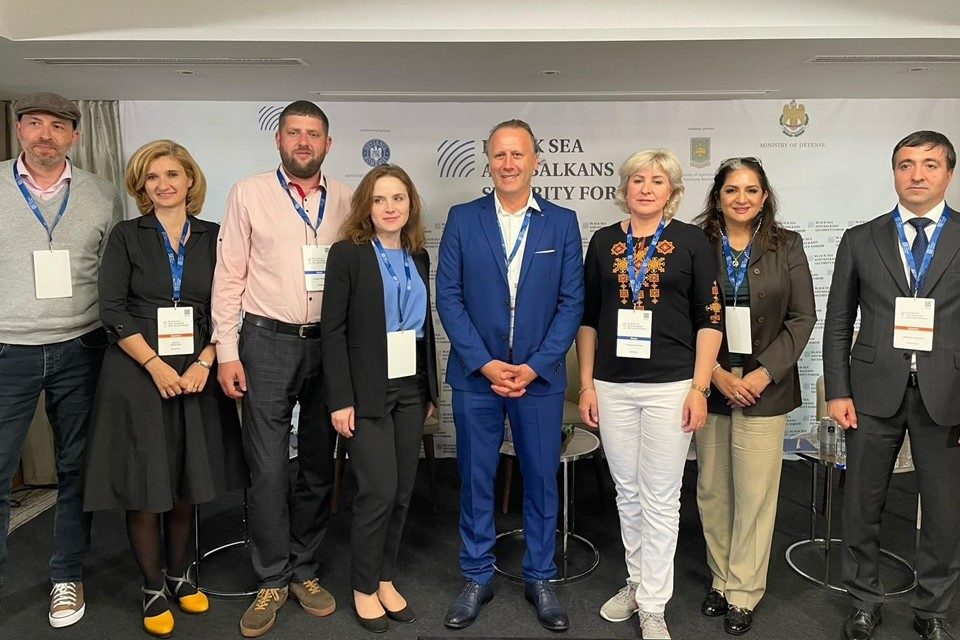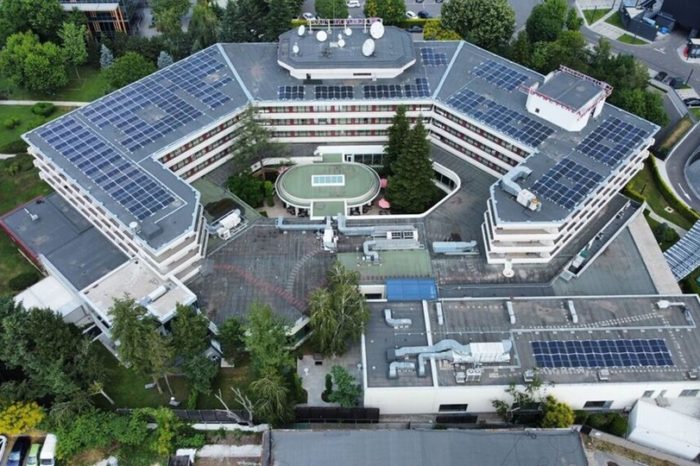The president of the Scheherazade Foundation, Wajiha Haris, chaired the panel “Environmental Diplomacy – a tool for cross-border ecological security and peace”, within the event “Black Sea and Balkans Security Forum”, organized by New Strategy Center

The president of the Scheherazade Foundation, Wajiha Haris, chaired the panel entitled “Environmental Diplomacy – a tool for cross-border ecological security and peace”, within the “Black Sea and Balkans Security Forum” event, organized by New Strategy Center, in partnership with the Ministry of National Defense, with the Ministry of Foreign Affairs as its institutional partner, with the support of NATO’s Public Diplomacy Division.
In the panel, several speakers, international specialists, from different countries such as: Marcel Mindrescu, University of Suceava, Romania, Dariia Kholiavchuk, Yuriy Fedkovych Chernivtsi National University, Chernivtsi, Ukraine, Raluca Nicolae, Agent Green, Romania, Carl Bruch, director of International Programs, Environmental Law Institute (ELI), USA (via VTC), William Keeton, University of Vermont, USA (via VTC), Shahmar Hajivev, Senior Advisor at the Center for Analysis of International Relations (AIR Center), Azerbaijan, have emphasized the importance of environmental diplomacy, especially in the current international security context.
Main points discussed included the Carpathian Convention Forest Protocol at COP3, which emphasizes regional cooperation in forest management; The Cordillera del Condor Peace Park in Peru and Ecuador, symbolizing reconciliation and biodiversity conservation, and Azerbaijan’s energy strategy at COP29, which underlines its commitment to environmental protection and climate action. The recording of the panel can be viewed by accessing the website: www.newstrategycenter.ro
The speakers also highlighted the continental and global importance of old and primary forests in Romania, and the fact that the forests of the Carpathian Mountains are globally recognized as an important natural climate solution, showing several directions of action to protect them, such as protecting cross-border areas from the Carpathians, supporting the climate, forests and biodiversity, through actions such as restoring and reforesting forests, protecting and preserving natural forests, improving the connectivity of the forest landscape.
Ukrainian and Romanian forests occupy an important place in terms of carbon storage, which represents an opportunity for international financing of carbon markets to contribute to the conservation and restoration of forests.
The war in Ukraine introduced significant challenges for environmental protection. Forests in Ukraine have suffered damage and protected areas are currently either in active combat zones or under occupation. The hectares are contaminated, requiring extensive demining efforts. These factors have created a critical need for sound environmental remediation and conservation strategies.
As a result, the discussions introduced examples of encouraging environmental diplomacy. One of the examples highlighted “Bucovina Peace Park”.
“Bucovina Peace Park”, aims to strengthen bilateral relations, promote peace and cooperation in the field of resource management, preserve natural heritage and biodiversity, reintegrate a historically significant region, and protect the unique architectural and cultural heritage of various ancient communities.















